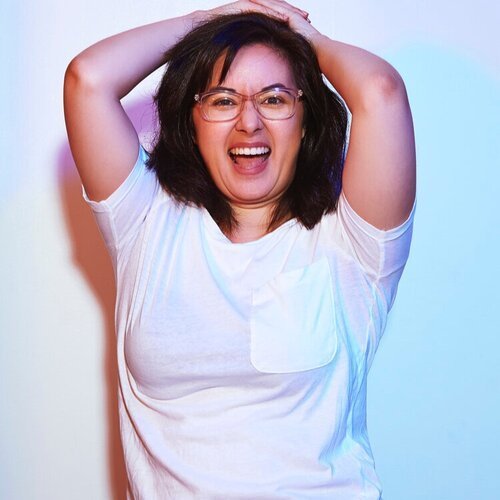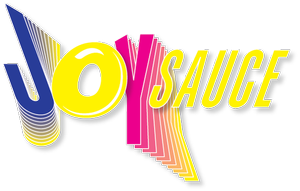Natasha Pickowicsz on Asian Ingredients, Cake, and Bake Sales
Mixed Asian Media - October 17, 2023
By Melissa Slaughter
Photos: Excerpted from More Than Cake by Natasha Pickowicz (Artisan Books). Copyright © 2023. Photographs by Graydon Herriot.
Powered by JoySauce
One of my favorite ways to relax after a long hard day is to watch baking and cooking YouTube videos. Sohla and Ham El-Waylly, Eric Kim, Melissa Clark, and of course, Claire Saffitz. And one hot summer day in New York, I sat down to watch Claire Saffitz and guest Natasha Pickowicz make savory scones. Immediately, I had to know everything about Natasha. And she is so much cooler than I ever expected.
Raised in San Diego, California, by a Chinese mother and an Irish-Ukrainian-American father, Natasha initially didn’t start as a chef. She went to Cornell and studied Scottish Literature. After that, she was a music journalist, a concert producer, and eventually, she made her way to Montreal where she fell into baking. Now she’s a fixture in the New York baking, pastry, and restaurant scene, and has been nominated for a James Beard Award three times. She just released her first cookbook, More Than Cake. I got the chance to catch up with Natasha over the phone just after she finished her book tour.
*This interview has been edited for clarity and length
Interview
Hi, Natasha, lovely to meet you! First question, what was your childhood like?
I grew up in San Diego, California. Both of my parents are in academia. My [Irish-Ukranian] dad is a professor of Chinese History, and my mom is a visual artist who also teaches. I grew up going to China with my family, both to see family, but also [my parents] would go there to do research or go on trips. So I would kind of tag along.
It’s exciting to hear that you traveled to China growing up. Not every mixed child gets to do a motherland trip that early. How did that affect your view of yourself as a mixed person?
[With] a lot of other biracial Asian Americans I know, there is this sense of not completely belonging to any group. It’s not just understanding my own whiteness, but figuring out how Chinese I was in relation to people who are 100% ethnically Chinese. Like, I went to Chinese school when I was in elementary school. But I think I was the only biracial kid in the entire school, and I definitely felt like I did not belong at all. I had classmates who were my age that could speak completely fluently and were there to learn like, how to write or whatever. That was really tough for me — to be in a school setting, but feel really far behind everyone else. It was miserable. I begged my parents to let me drop out, and they did. I didn't pick things back up until I went to college and I took Mandarin at Cornell. It was, like, the hardest thing I've ever done.
That's so cool. I’ve been thinking a lot about how language can sometimes gatekeep, even though it can also be culturally expanding. And as you were talking, I thought about how gatekeeping can happen not just with ethnic cultures, but work cultures as well. In terms of baking, how often have you come up against people saying, “Well, you can't be a pastry chef if you didn't go to pastry school?”
Yeah. I think there are parallels that could be drawn there when you're thinking about another culture and how language can invite you, or legitimize your position in that community. I live in New York City, so a language provides access to certain communities here that you might not have otherwise. But at the same time, even if you aren't fluent in Chinese or whatever, then you should still be allowed to participate in those local economies or traditions. I definitely see both sides of it.
But the pastry thing — that's drawing on this long, long tradition of institutional access. Certain titles that are given to you because you can afford a certain kind of education. And that's just really not interesting to me. If you want to go to culinary school, great. That was just something that I wasn't able to do, because I simply couldn't afford to go. Which I think is the reality for a lot of people. But I think also for me, that kind of institutionalized education gives students a more homogenous philosophy to making food. So, although initially not going to culinary school made me feel insecure, I think now when I look back on my career, I'm like, “Well, that was kind of a liberating thing too”. It allowed me to pursue my own voice within this space that wasn't influenced by what a school thinks your work should look like.
What is your food philosophy?
Food should be delicious. Especially when you're looking at something like pastry art, sometimes so much focus is put on technique or ability that things like sweetness are too heavy-handed. We've all felt that disappointment where we see a beautiful plate of food, but then the experience of actually consuming it is disappointing. I've always tried to make desserts that feel approachable — that look like the things that they are. But also, just figuring out how to use pastry as this tool of bringing people together.
In your career, did you ever get pushed into either making pastry or foods in general, that catered to just like the “white side” or the “Asian side”?
I definitely experienced and saw peers, colleagues, the restaurants that I worked in, dabbling in some pretty [intense] cultural appropriation when it comes to ingredients that were used. There is a really thoughtful way to incorporate East Asian or Chinese ingredients into your restaurant, repertoire, or dishes that you love. But it has to be done with integrity and research to do the ingredient justice. It can be really challenging, and that’s part of why I wanted to focus on writing cookbooks instead.
A wonderful segue! Now that you have your own cookbook, you have your own autonomy to create what you want. What was your philosophy heading into writing More than Cake?
That was really exciting because all of a sudden I felt super empowered! But also, it was terrifying because I was able to pursue dishes, ingredients, and ideas without having to be vetted by anybody. Most restaurants have this system of checks and balances, where if a new dish goes on the menu, usually a lot of people are testing it and giving it feedback. That collaborative process is always something that I really enjoyed doing with my pastry team. When you're writing a book it's very solitary, and there's no one telling you, “This dish could be better, and here's how.”
More than Cake also allowed me to fully explore ideas I had for dishes that were more personal to me. I could write that note explaining something, and give it historical context. Or I could write that recipe, and talk about how it related to my family. This opportunity to expand on my work in storytelling was really exciting and super special.
The book is about being a chef in New York City, as a person who grew up in California. In both traditional and contemporary Chinese cuisine, dessert is not a big deal. I didn't grow up with a mom who baked or was into sweets all that much. We didn't go to Chinese restaurants and get dessert. I think that carried over into my palate. I don't love desserts that are super sweet. I'm always really working toward balance and a sort of freshness and lightness. And, of course, writing a book is such a great opportunity to talk about some of these more obscure ingredients to a wider audience. Certain things that have become staples in my cake-making practice or my pop-ups are still kind of considered novel to somebody who, like, never had black sesame paste.
I would be remiss not to mention the bake sales. You've done these pop-up bake sales around New York, and they're usually connected with some sort of activism or cause. How did you get started with that, and what are your hopes for it as you continue?
[Back in 2017] I started producing bake sales when I was working full-time in restaurants. Because I was staffed at a restaurant, I had access to all the things that made it possible: the staff, the laborers, the facility, the restaurant itself, the venue, equipment. So every year that I did them, they became bigger and bigger. It became a very profound way to bring members of the New York pastry chef community together, which is not something that people really ever had a chance to enjoy or do. That was really special, creating more of a community with these little chefs to come together, try each other's work, and meet guests. Typically, most of my events benefit a nonprofit. The first three years were for Planned Parenthood of Greater New York.
Since my book came out, I wanted to theme the tour around taking the bake sales on the road. We did a big one in New York to kick off the tour, and then we did bake sales in Seattle, D.C., Ithaca, and Los Angeles. L.A. was a really special one, because we had it during Asian Heritage Month, right in Chinatown with Now Serving, an independent bookstore that's run by two Asian Americans. We had all the proceeds benefit the Chinatown Service Center, an amazing nonprofit based in L.A. that provides an array of social services to people in Chinatown. To have a stop in Chinatown with so many bakers who also identified as AAPI, that was really, really exciting.
Part of why I wrote the book was to give people a roadmap to figure out how to produce these events, however big or small, in their own community. I really don't see it as something I'll ever stop doing. What’s exciting for me is to see how that will transform moving forward, and how I'll continue to incorporate [bake sales and giving back to the community] into my day-to-day without a book tour. Just like as a person, you know?
End of Interview
If you’d like to support More Than Cake, Natasha has upcoming events on October 15 in NYC, October 16 in Brooklyn, and November 11 in Austin, TX. Follow her Instagram (@natashapickowicz) for more information.
Melissa Slaughter is an audio producer with Pineapple Street Studios based in Brooklyn, New York. She’s worked on podcasts for Netflix, HBO, Amazon, and Apple. You can read her written work at Mixed Asian Media or more at The Nerds of Color.
JoySauce is a multimedia network dedicated to celebrating the full spectrum of Asian American and Pacific Islander narratives. The site boasts a vibrant library of content around entertainment, lifestyle, food, travel, culture, relationships, art, and education in the form of exciting new streaming shows, movies, standup comedy, provocative podcasts, and a suite of editorial updated daily.







